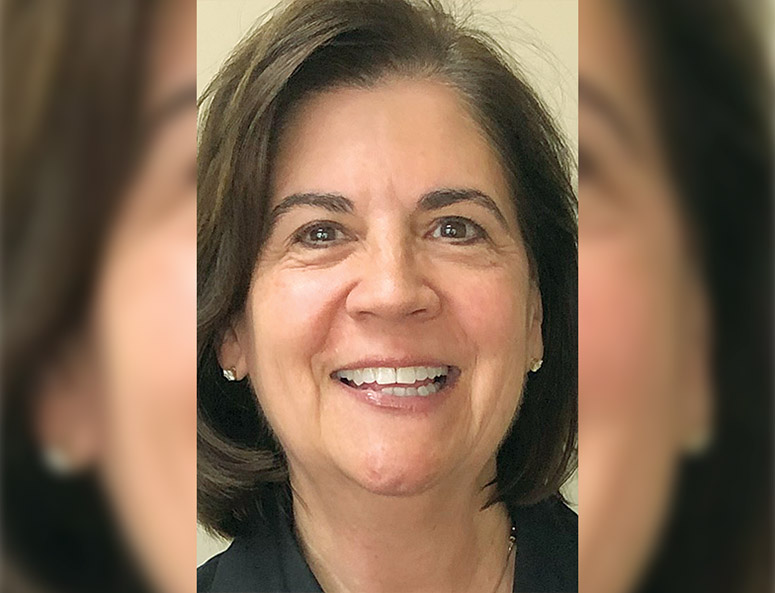The city overspent its general fund budget by more than $3.2 million in Fiscal Year 2020 and lacked the bookkeeping at that time to realize it was happening.
That was one of five material weaknesses and four significant deficiencies cited in the scathing, and long overdue, audit report Wanda Holley — with the Watkins, Ward and Stafford accounting firm — delivered to the city council on Tuesday. Two were repeat findings from previous years’ audit reports.
“Our cause (listed) for most of them was lack of training or inexperienced personnel doing jobs in the accounting department or the ones who had oversight over federal expenditures,” Holley said.
The fiscal year concluded on Sept. 30, 2020, and state law required the audit be finished no more than 12 months after that. Federal law mandated it be complete by Dec. 30, 2021.
“We incurred significant difficulties with management in obtaining the information needed to perform our audit,” Holley said, referencing City Hall. “This caused significant delay throughout the audit process, but due to personnel changes, we do not believe this will be an ongoing problem.”
While her name was never specifically mentioned, Holley noted several findings related to the work or oversight of Deliah Vaughn, who served as the city’s chief financial officer from May 2019 to September 2021. She left for a job with the city of West Point.
Among the material weaknesses, Holley said the general ledger wasn’t reconciled with bank statements in a timely manner and the budget was not properly amended or kept up with throughout the year to reflect actual spending — causing the city to overspend in the general fund and also have “unbudgeted funds” at the end of FY 2020.
“The overspending in the general fund, there were so many mistakes in the accounting records that I don’t think they would have gotten that right even so,” Holley told the council.
Vaughn was hired in the wake of previous CFO Milton Rawle being caught for embezzling nearly $290,000 from the city, using transfers from the general fund to cover his tracks. He later pleaded guilty and was sentenced to 20 years in prison.
Still, Holley said, the city hasn’t done enough to prevent that from happening again.
“After the misappropriation of funds, the city set up their own system of internal control to safeguard against transfers, that all transfers from the city bank account (must be) approved and … to make sure they went from one city bank account to another,” she said. “They did not follow their own system that they designed.”
Further, the city had “no real system” to track what it owed vendors and suppliers that fiscal year.
Oversight of municipal court fines caused another material weakness, as the city did not properly track ticket payments following a software change. That resulted in money from tickets, some of which should have gone to other state agencies, building up in a city bank account before Mark Alexander Jr., who served briefly as interim chief operations officer in 2021, straightened it out.
“In the end, (Alexander Jr.) did reconcile … and it was only out of balance by $300-something,” Holley said. “So all the money, we believe, made it to the bank account. It just had not been remitted to the proper state agencies. … We had to book a very large payable to those state agencies for all those tickets they had not paid on to the appropriate state agency.”
The last material weakness dealt with the schedule of federal awards, which Holley said accounted for the “largest delay” in finishing the audit. While the two most significant federal programs — coronavirus relief and the assistance to firefighters funds — were found to have operated incorrectly, the schedules and amounts of federal awards provided to the auditors were incorrect and ever-changing.
Holley said the city also “circumvented state purchasing law” in projects for which it sought Federal Emergency Management Agency Reimbursement after the February 2019 tornado, by issuing invoices under $50,000 as a means to circumvent state bidding laws for the work.
Significant deficiencies
Two repeat findings among significant deficiencies dealt with landfill receipts not being reconciled and there not being an adequate ledger for fixed assets, which Holley said “means assets could vanish if no one is checking on that.”
Neither of those issues has yet to be corrected.
Two other findings that have been corrected involve inter-fund loans and the blight elimination program.
“City personnel couldn’t readily determine what amounts any (city) fund owed another fund,” Holley said. “… If you lend money from one fund to another, you should have a ‘due to’ and ‘due from.’ When we came to audit, they were not reconciled, and there was really no control over that at all.”
As for the Blight Elimination Program, operated by Interim City Planner George Irby, Holley said the city, beginning in April 2020, had given $21,000 in inappropriate loans to its blight elimination partner, BH Properties — owned by Jabari Edwards, who is currently under federal for misusing millions of dollars in coronavirus relief funds for some of his other business ventures.
Through the program, BH was supposed to pay the city, which then bought a blighted property in the BH’s name. The city then applied for reimbursement through the Mississippi Home Corporation and passed the reimbursement back to BH. However, the city bought several properties in 2020 without first receiving money from BH. That plus incurring costs higher than what was reimbursable caused the program to borrow $30,000 from the general fund.
Holley noted that by year’s end, BH paid up, the program secured its reimbursements and made the general fund whole.
What’s next?
Current CFO Jim Brigham, hired in 2022, told the council the ledgers are being reconciled monthly and the transfer oversight issues have been solved. He said better accounts receivable software and a dedicated person to handle federal programs could help with some of the other issues.
Meanwhile, Holley said she is working with Brigham on the now overdue Fiscal Year 2021 audit, which is about halfway complete.
Ward 6 Councilwoman Jacqueline DiCicco asked if there was any potential fraud during the FY 2020, to which Holley said, “We didn’t see anything that looked like that.”
DiCicco then moved to create an audit committee, on which councilmen would serve. While Mayor Keith Gaskin expressed support for the idea, it died without a second as the council wanted to discuss it at a later date.
The council also tabled even accepting the report on the same grounds.
“The council needs time to process all this,” Ward 2’s Joseph Mickens said.
DiCicco asked Holley what the council could do to avoid future audit reports like the one presented Tuesday.
“An important element of internal control that you have control over is the hiring of personnel … to make sure that qualified personnel are hired to have those roles,” Holley said.
The council proceeded to appoint Robert Smith, who was mayor during the period covered by the audit, to the Columbus Municipal School Board in a 4-2 vote without any discussion.
Zack Plair is the managing editor for The Dispatch.
You can help your community
Quality, in-depth journalism is essential to a healthy community. The Dispatch brings you the most complete reporting and insightful commentary in the Golden Triangle, but we need your help to continue our efforts. In the past week, our reporters have posted 51 articles to cdispatch.com. Please consider subscribing to our website for only $2.30 per week to help support local journalism and our community.




